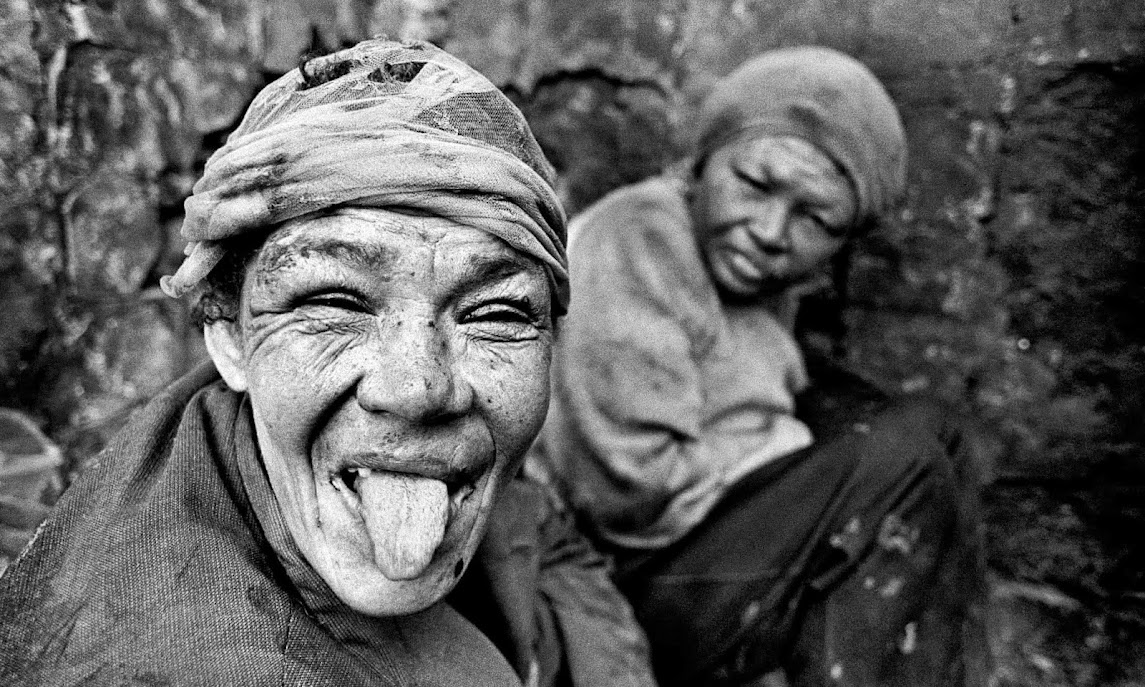During the 1970s, South Africa was governed by white supremacists who ruthlessly enforced the apartheid system of racial segregation. People who were not classified as 'white', were stripped of many of their basic human rights. In 1976 widespread protests erupted against the injustices and apartheid began to crumble. Twenty-three-year-old photographer Steve Bloom set out to capture the intense mood of the time.
Bergie, Cape Town 1976 Photograph: Steve Bloom
Afrikaans couple outside church, Paarl, 1976
Cape Town, 1976
An Idi Amin lookalike, wearing fake medals, takes part in a parade. The brutal Ugandan dictator was often cited by South Africans as a justification for white rule
Crossroads Squatter Camp, 1977
This sprawling slum near Cape Town airport grew out of defiance of the Group Areas Act which prohibited black city workers from living with their dependants. Shanties were built illegally, along with schools, shops and churches, by people determined not to be separated from their families. The authorities routinely demolished the houses, transporting any adult or child without a valid permit back to remote 'homelands', where jobs were scarce and survival difficult
Farm worker's child at home, Karoo, 1976
Man and daughter, Manenberg, 1977
Riot police, Cape Town, 1976
People took to the streets to protest against the injustices of apartheid
Segregated beach, Sea Point, Cape Town, 1976
Stroke victim and his wife, Manenberg, near Cape Town, 1976
Green Point , Cape Town, 1976
Teargas, Grand Parade, Cape Town, 1976
In the mid-1960s, photojournalist Ernest Cole undertook a dangerous mission—to produce a volume of photographs that would reveal to the world the excruciating realities of life under apartheid. The result was the groundbreaking book House of Bondage, published in 1967.
“When I say that people can be fired or arrested or abused or whipped or banished for trifles, I am not describing the exceptional case for the sake of being inflammatory. What I say is true – and most white South Africans would acknowledge it freely. They do not pretend these things are not happening. The essential cruelty of the situation is not that all blacks are virtuous and all whites villainous, but that the whites are conditioned not to see anything wrong in the injustices they impose on their black neighbors.” – Ernest Cole, House of Bondage, 1967.
 |
Handcuffed blacks were arrested for being in a white area illegally.
Doornfontein Railway station in rush hour. This picture shows the reality of apartheid without the need for any words.
|
Earnest boy squats on haunches and strains to follow lesson in heat of packed classroom.
This was on the edge of Von Brandis Square, next to the Supreme Court. The municipality had recently installed new underground parking, with toilets
 |
| Servants are not forbidden to love. Woman holding child said, “I love this child, though she’ll grow up to treat me just like her mother does. Now she is innocent.” |
The Harsh Reality of Life Under Apartheid in South Africa >>>



























.jpg)